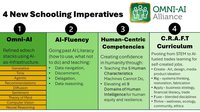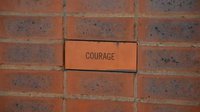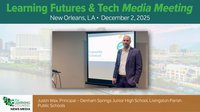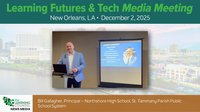“Damn the torpedoes, full speed ahead.” --Union Admiral David Faragut
I guess you don’t have to be a history buff to recognize the quote. “Damn the torpedoes, full speed ahead.” It is one of the more memorable quotes to come out of the American Civil War, also known as the Brother’s War, a conflict that was all-encompassing in scope, and horrible in its application.
In almost every conflict, there was a similar sentiment that became a rallying cry for survival and ultimately, success. Here’s another. Keep your head down and your powder dry. It’s hard to fathom the circumstances from which these sayings originate. For a long time, warfare consisted of two large groups of soldiers standing face to face and shooting at each other. Often in the rain or snow. So, keeping your powder dry was important if you were standing in the rain, loading your weapon and hoping you didn’t catch a lead ball in the face.
I wonder what the rallying cry will be for today’s education struggle. 200 years from now, how will we be remembered by future educators? Will technology have advanced so far, that the thought of a teacher standing in front of a group of children drilling in a lesson will be akin to two groups of soldiers standing in an open field shooting at each other?
Nothing has changed
So much has changed in the science of education. And yet, nothing has changed. The science and understanding of cognitive capacity and cognitive ability has made our current method of teaching and learning seemingly obsolete, almost barbaric in its application. Given the importance of education to the wellbeing of children everywhere, and hence the wellbeing of the entire future world’s population, when will we get serious about winning this war?
When I was in the third grade, Mrs. Pat Thompson would instruct the class, “Now boys and girls, I want everyone to put on their thinking caps.” 53 years ago, in 1967, that meant to focus and think about the question she was preparing to ask. 53 years from now, in 2074, that may mean to put on your headset, complete with electrodes that stimulate areas of the brain, enhancing your cognitive abilities and readying you to determine what you would like to learn next.
Do I envision thinking caps with stimulating electrodes? Probably not. But I do applaud the folks that are dreaming up such a solution. Because most of us, even those of us that dearly love education and strive for the success of every learner, are content to stand in a field, shooting at each other and trying to keep our powder dry.
The casualties are mounting, including every boy and girl that isn’t learning to read. Every boy and girl that isn’t mastering mathematics. Every boy and girl that isn’t living up to his or her own potential. Every boy and girl that should have had a better life, a more secure life, a better economic outlook, and a more enjoyable life. Every decaying community. Every closed business. Every senseless crime committed out of hopeless poverty and despair. Every future generation. Every one of us.
A Battle worth winning
As educators, we are standing in a field, firing our teaching weapons at the problem; teaching weapons that are, remarkably, mostly unchanged in the last 200 years. But the problem has changed. We face a different world and different circumstances than we did 200 years ago. Instead of senselessly repeating the past, let’s drop our muskets and pick up something that can make a difference. Instead of trying unsuccessfully to tell our learners what to learn, let’s show them how to learn. That is a battle worth fighting. And one we can win.
As it so happens, we have the weapons we need. And we have the generals in place with the knowledge to help us make it happen. My friend Roger Stark is one of the leading experts in Cognitive Learning Theory. That’s a high-falootin’ term for some very effective brain science – basically, it means understanding how the brain learns, and using that knowledge to help every child advance in his or her journey to self-fulfillment. And it works. Because every child is different, every brain is different, and every child learns differently. Now we have the ability to analyze the way each child learns and set that child on a path of increased learning and the opportunity for a better life. But it only works if you use it. Without cognitive theory, we are firing in the dark, shooting blanks at the most devastating enemy imaginable: an unrealized opportunity.
Let’s make the fight about the future of our children. Every child has cognitive strengths and weaknesses, and this is what accounts for much of the dramatic differences in our students’ ability to learn. Insist on teachers understanding their students’ cognitive profiles and insist that students understand their own cognitive strengths and weaknesses. And then, take your position in the fight. And damn the torpedoes. Full speed ahead.
About the author

Charles Sosnik is an education journalist and editor and serves as Editor in Chief at the Learning Counsel. An EP3 Education Fellow, he uses his deep roots in the education community to add context to the education narrative. Charles is a frequent writer and columnist for some of the most influential media in education, including the Learning Counsel, EdNews Daily, EdTech Digest and edCircuit. Unabashedly Southern, Charles likes to say he is an editor by trade and Southern by the Grace of God.











